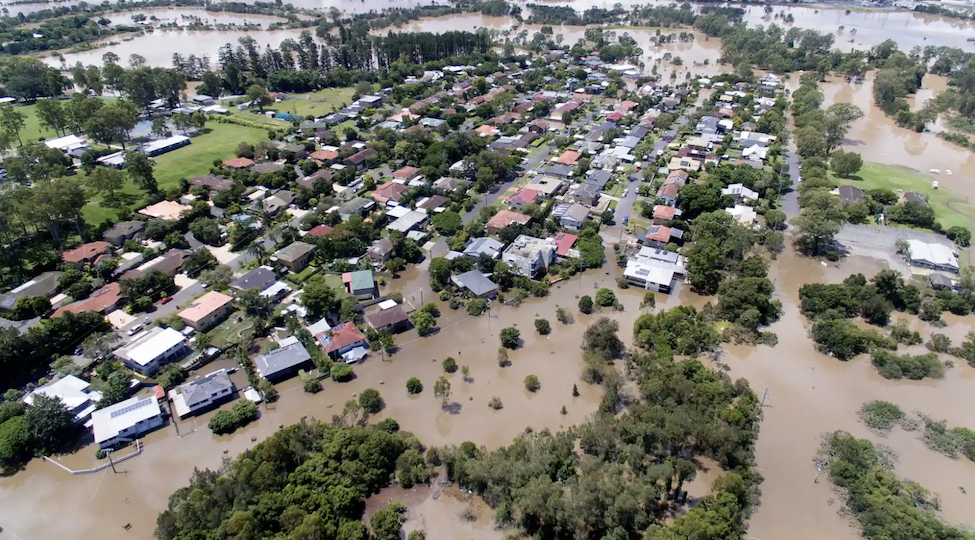How does climate change affect flood risk?
How does climate change affect floods? Well, climate change – driven by the burning of coal, oil and gas – means all today’s weather is occurring in an atmosphere that’s been made warmer, wetter and more energetic. Think of heating water in a pan: as it warms, it starts to bubble (more energy) and steam (more moisture in the air).
This extra energy, heat and moisture can mean several things:
- A warmer atmosphere can hold more moisture. In fact, for every degree of warming the atmosphere can hold around 7% more moisture.
- More moisture can then mean that more rainfall comes in short, intense downpours. This can increase the risk of flash flooding.
- The extra heat in the atmosphere means there’s more energy for weather systems that generate intense rainfall. Climate change is affecting our water cycle, which refers to the way water moves about our planet. Generally speaking, wet areas are getting wetter and dry areas are getting drier. Moreover, we are experiencing more of our rain in the form of intense downpours, leading to a greater risk of floods.
Climate change is affecting our water cycle, which refers to the way water moves about our planet. Generally speaking, wet areas are getting wetter and dry areas are getting drier. Moreover, we are experiencing more of our rain in the form of intense downpours, leading to a greater risk of floods.
Impacts of extreme rainfall and floods
On communities
Increasingly, we see that communities are being hit with one disaster after another, such as drought followed by fires followed by floods. The compounding effect of these disasters is taking a heavy toll.
The most recent IPCC report highlighted that repeated exposure to extreme events, like flooding and bushfires, is associated with decreased mental wellbeing in many ways. These mental health effects include loss of sense of identity and place, heightened anxiety and risk of depression, along with post-traumatic stress disorder and other adverse outcomes.
It’s important to take care of your mental health, both while extreme weather events are unfolding, and afterwards during what can often be a long recovery period. You can find a guide on managing eco-anxiety here, and one for parents and kids here. Flood events can also have a big impact on domestic and native wildlife. You can read more about how to care for animals during a flood here.
Health Impacts
Heavy rainfall and floods all affect our health in many ways – contaminating water supplies, increasing mosquito-borne diseases such as Dengue and Ross River virus, and increasing psychological stress in communities, as explained above.
While intermediate levels of rainfall can cause damage to property, heavy rainfall can claim lives, as we’ve heartbreakingly seen already in the 2022 floods.
Floods can also impact critical infrastructure which can have ongoing effects on health and well-being. For example, floods frequently damage power transmission and sometimes power generation, which also has knock-on effects like leaving people without access to refrigeration or the Internet. Extreme weather events such as intense rainfall and floods can reduce water quality and availability, jeopardising water security and affecting human health.
Economic Impacts
Floods made up the greatest proportion of economic damages from extreme weather in Australia over the last decade, followed by tropical cyclones and droughts. In fact, if emissions continue unabated, floods could cost the Australian economy $40 billion per year by 2060.
Immediate impacts of floods include property damage, destruction of crops and livestock, clean up costs and emergency response.
climatecouncil.org.au

